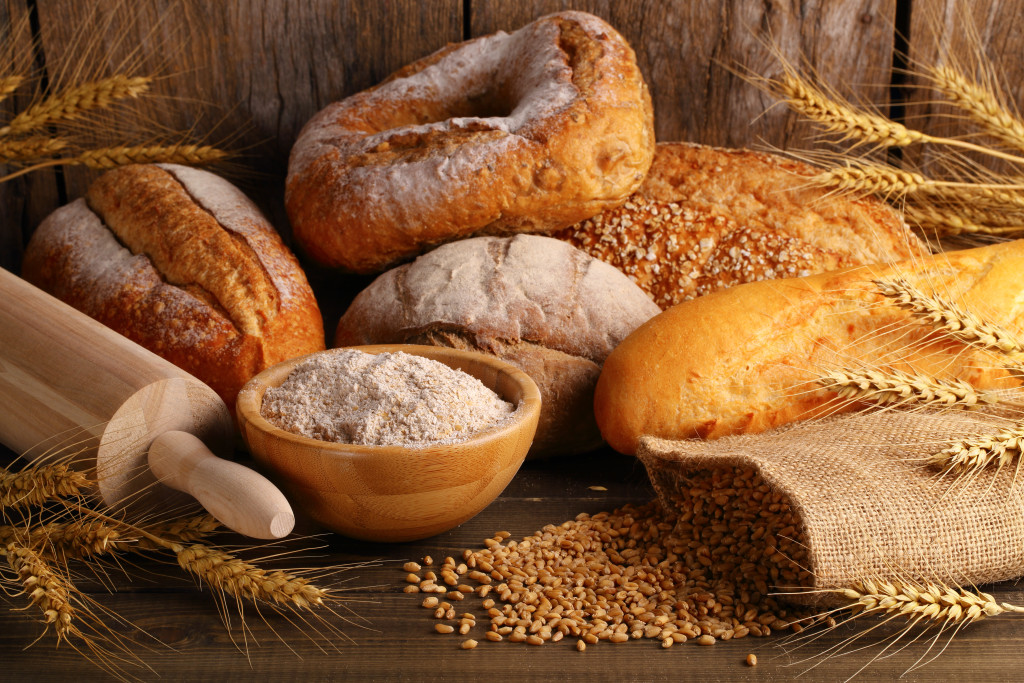What are the health Benefits from eating whole grains?
 Studies demonstrate that consuming entire whole grains rather than refined whole grains brings down the danger of numerous ceaseless illnesses. While advantages are most claimed for those expending no less than 3 servings day by day, a few studies show diminished dangers from as meager as one serving of whole grains every day. The message: each entire grain in your eating regimen makes a difference!
Studies demonstrate that consuming entire whole grains rather than refined whole grains brings down the danger of numerous ceaseless illnesses. While advantages are most claimed for those expending no less than 3 servings day by day, a few studies show diminished dangers from as meager as one serving of whole grains every day. The message: each entire grain in your eating regimen makes a difference!
Obviously, these profits are most claimed in the setting of a general sound eating regimen. Nobody sustenance – even entire grains – will promise great well being. It’s likewise critical to recall that some entire whole grain sustenances are healthier than others. Plain grains – from tan rice and quinoa to wheat berries– and entire grain pasta ought to be a standard peculiarity on your table, with transformed grains consumed less regularly. Indeed an entire grain treat is preferred for you over a refined grain one, all different fixings being equivalent.
By eating more whole grains it is an easy way to make your diet healthier. Whole grains are packed with nutrients including protein, fiber, B vitamins, antioxidants, and trace minerals (iron, zinc, copper, and magnesium). A diet rich in whole grains has been shown to reduce the risk of heart disease, type 2 diabetes, obesity, and some forms of cancer. Whole-grain diets can also improve bowel health by helping to maintain regular bowel movements and promote growth of healthy bacteria in the colon. Yet the average American eats less than one serving per day, and over 40% never eat whole grains at all. Young adults get less than one serving daily.
Why? For one thing, it’s not always easy to tell just which foods are whole-grain. Scan the bread, cereal or snack packaging, and virtually every one promotes its whole-grain goodness. But not all of them actually are whole-grain. Terms like “multigrain,” “100% wheat,” “cracked wheat,” “organic,” “pumpernickel,” “bran,” and “stone ground” may sound healthy, but none actually indicates the product is whole-grain. Also, many people have the perception that whole grains just don’t taste good, or that it’s difficult to work them into their daily diets.
Entire grains can be a fantastic wellspring of fiber. At the same time not all entire grains are great wellsprings of fiber. Entire wheat contains among the most astounding measure of fiber of the entire grains. Tan rice contains the minimum. For the vast majority, entire grains are their diet’s best wellspring of fiber. Most entire grain sources yield from 1 to 4 g of fiber every serving, tantamount to products of the soil, and simply the perfect sum when spread for the duration of the day. Could fiber supplements provide for you the same profit? While you get a lot of fiber from these supplements, you’ll pass up a great opportunity for the various nutritious profits of entire grains. Be that as it may, on the off chance that you know you’re not getting no less than 25 g of fiber every day, fiber supplements are an extraordinary approach to help you get there. Ladies require 25 g every day, while men ought to get around 38 g every day.
